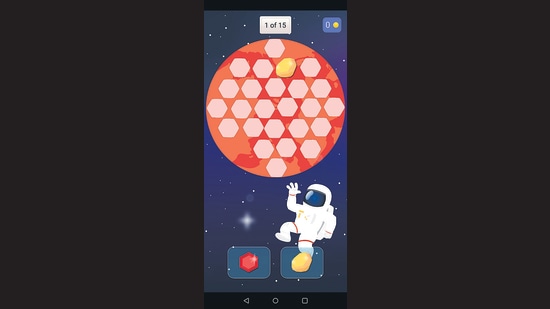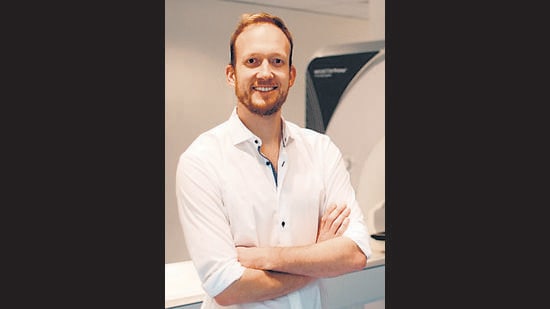A new app lets you play games on your phone, to contribute to brain research
Picking between gemstones, aliens and cows is helping researchers at University College London gather data on decision-making, learning processes, and eventually links between brain development and mental health.
The games may seem a bit like Candy Crush. Players must guess if there are more rubies or more diamonds on the screen; more pink aliens or blue ones; and use clues to determine which of two cows, brown or white, will yield more milk. But these seemingly simple games on a new app called Brain Explorer are helping neuroscientists gather data across age groups, from around the world.

The app is part of a research project being conducted at the Max Planck UCL (University College London) Centre for Computational Psychiatry and Ageing Research. The research aims to establish links between brain development and mental health.
Treasure Hunt (the one with rubies and diamonds) investigates information-gathering. It indicates “how impulsive you are when making decisions. Are you someone who makes decisions easily, or are you rather indecisive and need a lot of information before you make up your mind?” says British neuroscientist Tobias Hauser, 37, who leads the research team with post-graduate research fellow Vasilisa Skvortsova, 36. “We know that the brain chemicals (neurotransmitters) noradrenaline and serotonin are critical for this process, and this game provides a window into these neurotransmitter functions,” Hauser adds.
Space Observer (the pink and blue aliens) investigates metacognition, or insight into one’s behaviour. “Are you someone who knows very well when you made a wrong decision or do you find it difficult to judge how well you did,” says Hauser.
The games are followed by brief questionnaires on the screen, which ask users about their levels of confidence in a decision, and their reasons for arriving at them. Researchers and players can then see how well their confidence aligns with their objective performance. “Learning from feedback is an essential cognitive process, which changes through the development and ageing. How individuals learn in changing and uncertain environments, which strategy they choose (exploiting a known option or going for a less certain one) is related to various personality measures such as impulsivity,” Skvortsova says.

The cows game and a somewhat-linked pirates game (you must learn how to avoid losing the milk you have gathered) are particularly helpful in studying the learning process, because they track how differently we learn from reward and punishment, which are based on different neural mechanisms.
“Studying the impact of brain development on mental health is important because 75% of all mental illnesses arise before adulthood, and we do not know why,” Hauser says. “What we know is that the brain is being fundamentally reorganised during this time.”
The Brain Explorer project, funded by grants from the Royal Society and Wellcome Trust, Jacobs Foundation and the Medical Research Foundation, was launched in 2019; the app was launched in December. There are five games on the app, all designed by Hauser’s team along with the app development company THKP, LLC. Players around the world (the games are available in English, German, Portuguese, Russian, and Danish) have so far made a combined 1-million-plus game choices, helping Hauser and Skvortsova’s team collect data from across countries, ethnicities and age groups.
“Most brain research studies are limited in their sample size and thus the generalisability of the findings,” says Hauser. Normally, big machines in hospitals such as Magnetic Resonance Imaging or MRI scanners are used for such kind of research. “As they are very expensive, we can only study a few people and we can only work with people who can come into our lab.” The app, however, has turned this into a kind of citizen science project.
The data collected via the games is analysed using mathematical models. “We are currently in the process of writing up the first results. It will probably take another year until the results are published in scientific journals,” Hauser says. Meanwhile, more games are in the works. “By playing these games, people can learn about their own brain functions too,” Hauser says.
Catch your daily dose of Fashion, Health, Festivals, Travel, Relationship, Recipe and all the other Latest Lifestyle News on Hindustan Times Website and APPs.
Continue reading with HT Premium Subscription




